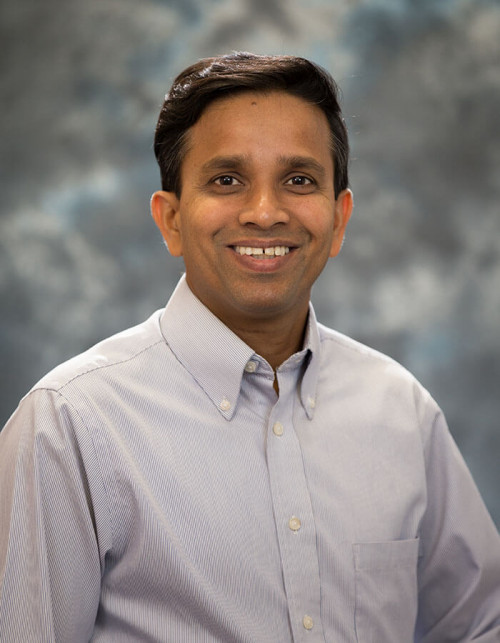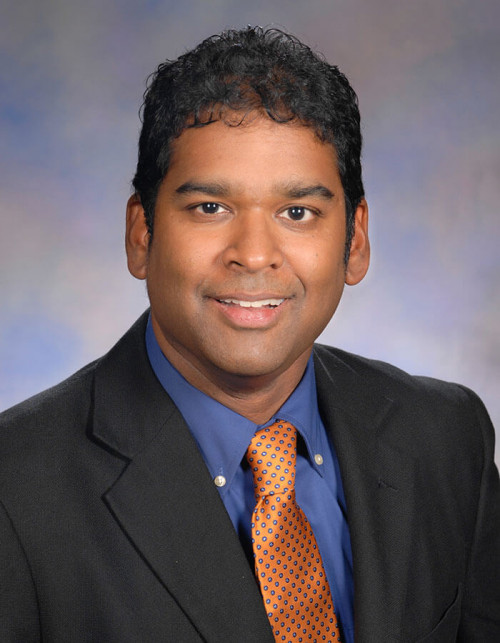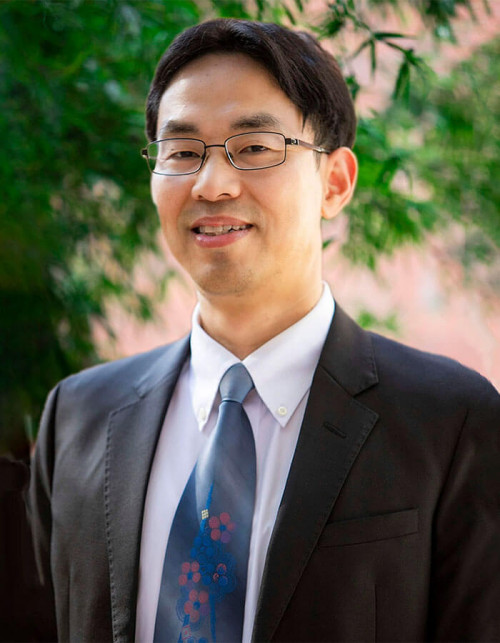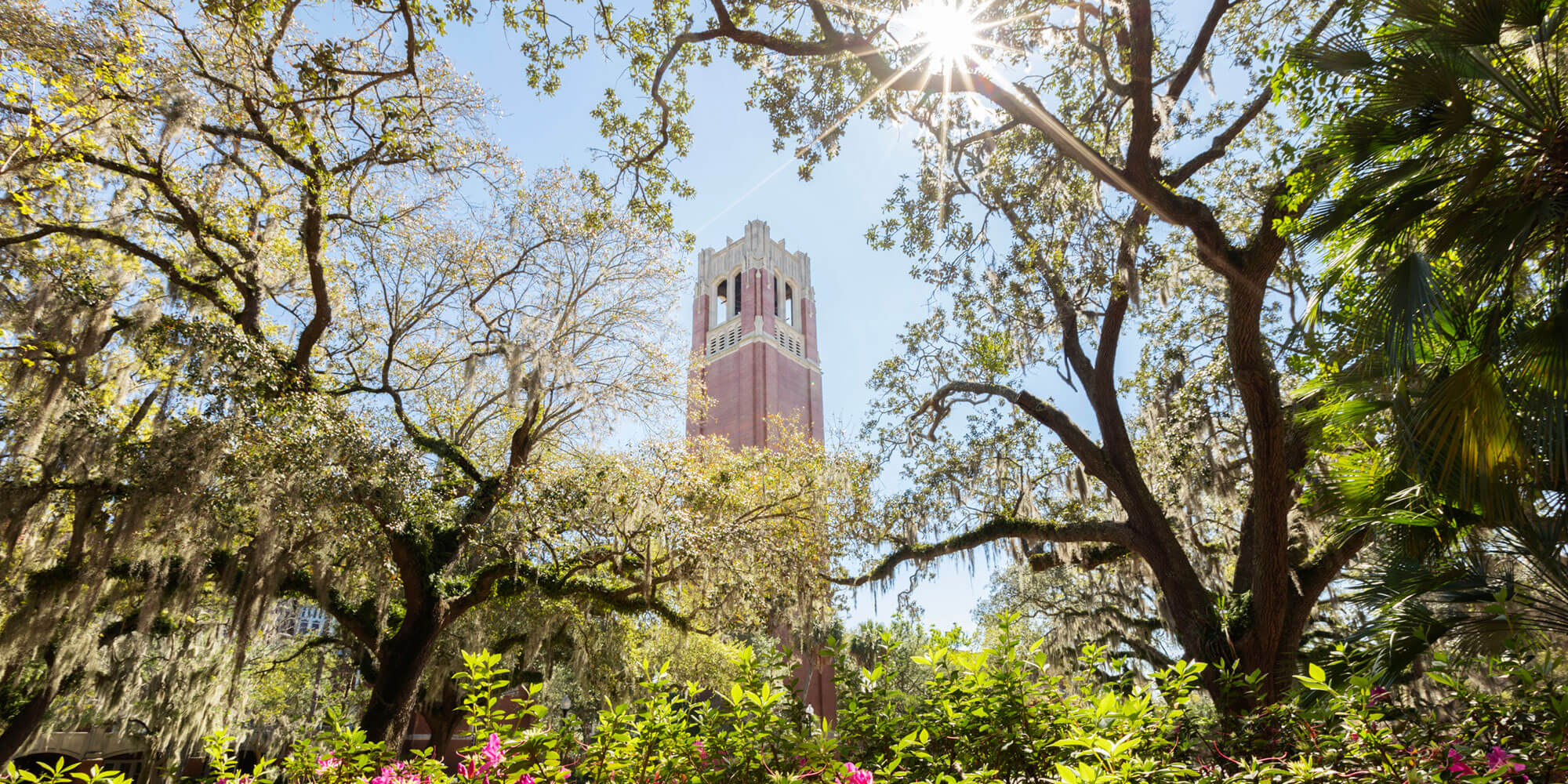The University of Florida Research Foundation has named 35 of the university’s most productive and promising faculty members as UFRF Professors for 2025.
“Since the professorships were created in 1997, over 900 faculty have been named UFRF Professors,” said David Norton, UF’s vice president for research. “These are our most innovative and productive faculty, with a proven record of research and scholarship and the potential for even more success in the future.”
The UFRF Professors were recommended by their college deans based on nominations from their department chairs, a personal statement and an evaluation of their recent research accomplishments as evidenced by publications in scholarly journals, external funding, honors and awards, development of intellectual property and other measures appropriate to their field of expertise.
The three-year award includes a $5,000 annual salary supplement and a one-time $3,000 grant. The professorships are funded from the university’s share of royalty and licensing income on UF-generated products.
Congratulations to the following faculty from the Herbert Wertheim College of Engineering.

Prabhat Mishra
Professor of Computer and Information Science and Engineering
Prabhat Mishra, Ph.D. is a professor in the Department of Computer and Information Science and Engineering and a UF Research Foundation Professor at the University of Florida. His research interests include embedded systems, design automation (VLSI CAD), hardware security, energy-aware computing, formal verification, system-on-chip validation, machine learning and quantum computing. He received his bachelor’s from Jadavpur University, his master’s from Indian Institute of Technology at Kharagpur and his Ph.D. from the University of California at Irvine – all in Computer Science. Prior to joining UF, he worked with Intel, Motorola, Sasken, Synopsys and Texas Instruments.
Mishra has published nine books, 35 book chapters and 250 research articles in premier international journals and conferences. He holds 30 patents, and his research has been recognized by several awards, including the National Science Foundation CAREER Award, IBM Faculty Award, three Best Paper Awards (ISQED’16, VLSID’11, CODES+ISSS’03), as well as eight nominations for Best Paper Award (ASPDAC’23, DATE’19, ASPDAC’17, NANOARCH’13, VLSI’13, DATE’12, DAC’09, VLSI’09) and EDAA Outstanding Dissertation Award from the European Design Automation Association. He has also received awards from UF, including Invention of the Year Award, Doctoral Dissertation Mentoring Award and International Educator of the Year Award. His research projects are sponsored by federal agencies (NSF, AFRL, ARO, AFOSR and DARPA) and industry leaders (SRC, Raytheon, Intel, Cisco, Harris, IBM, Edaptive and Synopsys).
Mishra currently serves as the program chair of the International Conference on Hardware-Software Codesign and System Synthesis (CODES+ISSS) and IEEE International Symposium on Hardware Oriented Security and Trust (HOST). He also serves as a senior associate editor of ACM Transactions on Design Automation of Electronic Systems (TODAES) and as an associate editor of ACM Transactions on Embedded Computing Systems (TECS). He has served on editorial boards, as well as organizing/program committees of several leading journals and conferences. He is a Fellow of the Institute of Electrical and Electronics Engineers (IEEE), a Fellow of the American Association for the Advancement of Science (AAAS) and a Distinguished Scientist of the Association for Computing Machinery (ACM).

Kevin Butler
Professor of Computer and Information Science and Engineering
Kevin R. B. Butler, Ph.D., is the Florida Institute for Cybersecurity Research director and a University Term Professor. Butler directs the Center for Privacy and Security for Marginalized and Vulnerable Populations (PRISM), a National Science Foundation Frontiers project. He is also a Computing Research Association’s Community Computing Council member.
Butler joined the University of Florida in 2014 as part of the UF Rising to National Preeminence Hiring Program and was the Arnold and Lisa Goldberg Rising Star Associate Professor in Computer Science before his promotion to professor. His research focuses on the security of computing devices, systems, networks and users of computing technology. Recent work in his includes securing embedded systems and protocols, mobile device security and privacy, cellular device and network security, side channel analysis, establishing the trustworthiness of data and maintaining its provenance, protection of Internet traffic and examination of censorship, attacks and defenses against the cloud infrastructure, and needs of vulnerable users, particularly populations with impairments and survivors of abuse.
Butler’s research areas also include securing Internet routing, malware propagation, applied cryptosystems, adversarial machine learning, cyber-physical systems and trustworthy computing. Butler received a National Science Foundation CAREER Award in 2013 and was named International Educator of the Year within the Herbert Wertheim College of Engineering in 2017 for his work on developing global standards for securing digital financial services in the developing world. From 2017 to 2022 he was co-chair of the International Telecommunications Union’s Security, Infrastructure, and Trust Working Group as part of the Financial Inclusion Global Initiative.
Butler is a senior member of IEEE and ACM. He is the technical program co-chair of the 2022 USENIX Security Symposium and conference general chair for ACSAC 2020 and ACSAC 2021. Butler is also an affiliate faculty member of the Center for Children and Families within the UF’s Levin College of Law.

Eric Du
Professor of Civil and Coastal Engineering
Eric Jing Du, Ph.D., is a civil engineering professor at the Engineering School of Sustainable Infrastructure & Environment within the Herbert Wertheim College of Engineering. Du’s research focuses on embodied artificial intelligence and human-robot interaction to enhance the benefits of robotics applications. His work develops AI, augmented reality and virtual reality systems to improve autonomy, workforce development and safety on construction sites, in healthcare, in the ocean and in space.
His research has garnered millions of dollars in funding from prestigious organizations including the National Science Foundation, NASA, National Institute of Standards and Technology (NIST) and the U.S. Air Force Office of Scientific Research (AFOSR).
Du has published over 200 peer-reviewed papers featured in highly regarded academic journals and conferences. He serves as director of the Informatics, Cobots and Intelligent Construction (ICIC) Lab, and the chair of the Visualization, Information Modeling and Simulation Committee (VIMS) for the American Society of Civil Engineers (ASCE).
Du is committed to his students’ education and works to expand their interests in machine learning, building information modeling and virtual and augmented reality. Working with the UF College of Design, Planning and Construction, he and his colleagues from ESSIE co-created a bachelor’s degree program in Industrialized Construction Engineering. He actively mentors students and provides hands-on experience in his lab.
Du graduated with a bachelor’s degree in civil engineering and a master’s in enterprise management from Tianjin University in China. He earned his Ph.D. in construction management from Michigan State University. Du’s work reflects a passion for bridging technology and education to build a smarter, safer and more efficient future for the civil engineering industry.

Yong Huang
Professor of Mechanical and Aerospace Engineering
Yong Huang, Ph.D., is a professor in the departments of Mechanical and Aerospace Engineering (primary), Biomedical Engineering, Materials Science and Engineering, Chemical Engineering and Electrical and Computer Engineering at UF. A passionate researcher and mentor, Huang focuses on advanced manufacturing, particularly how materials behave during manufacturing processes and how innovative manufacturing methods can be used to tackle real-world problems in healthcare, energy and other applications.
At the core of his work is a deep curiosity about how materials, both solid and liquid, respond to high strain-rate conditions during advanced manufacturing. He’s especially known for his contributions to additive manufacturing, including inkjet-, laser- and extrusion-based bioprinting, where his team explores how to precisely and reliably print engineering and biological materials into three-dimensional structures. The work that blends the rigor of physical science with a creative, problem-solving mindset.
As director of UF’s Advanced Manufacturing and System Integration Lab within the Center for Manufacturing Innovation, Huang leads a diverse and dynamic team. Together, they have developed techniques for scaffold-free bioprinting of tissues and organs, room-temperature metal printing and even additive manufacturing in space. The group also designs and prints micro-physiological systems — such as human respiratory models and brain simulants — for use in disease research and medical education.
Huang has authored more than 150 papers in top-tier journals such as Nature Reviews Methods Primers, Nature Communications, Advanced Materials and Matter. His work has been cited more than 12,000 times. He holds 13 patents (with one licensed technology) and has secured funding as principal investigator from the U.S. Department of Energy, National Science Foundation, National Institutes of Health and many others.
His contributions have earned national recognition, including the 2024 Society of Manufacturing Engineers Sargent Progress Award and the 2025 American Society of Mechanical Engineers Shaw Manufacturing Research Medal. He served in leadership roles with the American Society of Mechanical Engineers and provided expert service as a reviewer and editor for top journals in the field.
Huang is equally committed to education and mentorship. He was recently honored with the college-level Faculty Doctoral Mentoring Award in 2025. Many of his Ph.D. students have earned departmental research and teaching honors, a reflection of his hands-on, student-centered approach to training the next generation of researchers.

